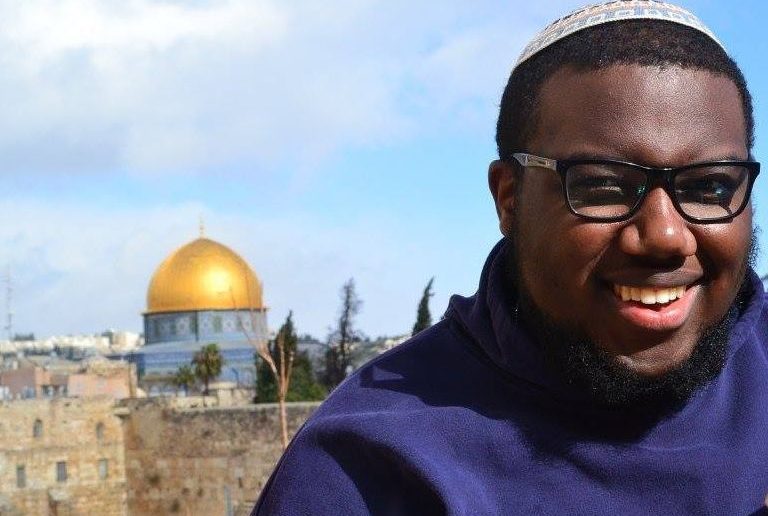Days after Hamas’ Oct. 7 attacks against Israel, thousands of people took to the streets to celebrate. Others rejoiced over social media.
Black Lives Matter Chicago posted an image of a paraglider with a Palestinian flag attached to his parachute and “I stand with Palestine” written beneath.
The now-deleted post was a reference to the Hamas terrorists who descended on Israeli communities with parachutes and gliders, butchering hundreds and taking civilian hostages. The image was posted long before Israel’s response to Hamas’ attack and the ensuing humanitarian crisis in Gaza.
But in the world of Black progressive organizations, this sentiment was no outlier. BLM Phoenix shared their statement, “Palestinian freedom fighters are not terrorists!” while BLM Detroit amplified posts supporting Hamas and dismissing the violence committed against Israeli civilians.
No mourning of Black Israelis killed. Instead, they celebrated their murderers. So, why don’t those Black Lives Matter?
Perhaps it is the idea that Jews are white colonialists oppressing a brown minority that renders Black Jews invisible. This is absurd. The majority of Israeli Jews are people of colour who hail from Arab lands, including a significant Black community comprising Ethiopian, Caribbean, and Afro-Latino Jews.
Perhaps it is the idea that Zionism’s ideals were conceived in a basement by European idealists and not the fulfillment of a Jewish millennia-long dream.
These false premises make it challenging to understand what to do with Black Jews—if there’s anything to do at all. And this is when bigots resort to vile rhetoric to make their point.
Today, social media is littered with messages telling Black Jews living in Israel to “go back to where they came from”—a charge levied at Jews in every land they’ve lived. The term ‘Felasha’, or stranger/foreigner, was a derogatory term used by Ethiopians to describe the Jewish populations of Ethiopia. For Ethiopia’s Jews, to return where they came from would mean returning to Israel.
No nation and its policies should be free from scrutiny, including Israel’s. Although Israel is a diverse country, racism persists. But Black Israelis and their allies seek to reform the nation they call home and its policies, not to abolish it. Instead, they draw inspiration from the American civil rights movement.
The civil rights movement’s most prominent and influential leaders, Dr. Martin Luther King and John Lewis, advocated nonviolent resistance to bring about social and legal change.
The Black struggle is incompatible with Palestinian resistance, which sees violence as justifiable.
Hamas, Islamic Jihad, and the Popular Front for the Liberation of Palestine are militant groups that, under the guise of resistance, have carried out attacks targeting Israeli civilians.
Violence was the chosen tactic of opponents of the civil rights movement, including the Ku Klux Klan, the White Citizens’ Council, and other white supremacists. Those who chose violence as a means of achieving their political goals were labelled what they were: terrorists.
Those who wish to advocate for Palestinians have too long allowed toxicity to permeate their ranks, as evidenced by demonstrations at Toronto’s Avenue Road overpass, a bridge in the heart of a predominantly Jewish neighbourhood. This was no expression of civil liberties; this was an act of intimidation that sought to make Jews feel unsafe and undesired in their own homes.
Diaspora Jews are usually a minority where they live, while they are also the target of a disproportionate number of hate crimes. In Toronto alone, antisemitism continues to account for more reported hate crimes than any other category, making up 37 percent of all hate crimes reported to police in 2023 and 53 percent of all reported hate crimes since the Israel-Hamas war began.
If a movement resorts to intimidation, bullying, hatred, and violence to make its point, perhaps it’s not the result of a few “bad apples” but an indication that something fundamental to the movement is rotten.
In this case, it’s the anti-Israel movement’s willingness to cast aside Black Jews, to speak over them, and to misappropriate their experiences to fit into a desired narrative.
As we wind down another Black History Month, hopefully future years will provide time to recognize the past, present and future of all Black peoples—including Black Jews.
Tyler Samuels is the engagement director of Jews of Colour Canada and the creator of BluntBlackJew.
